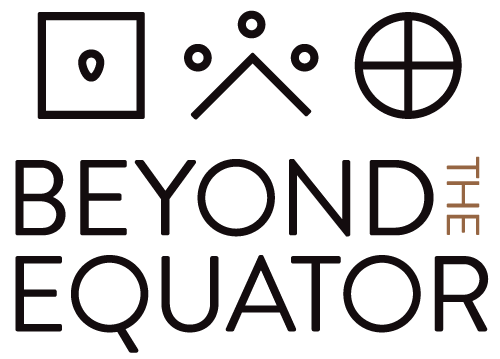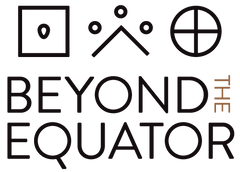We all know that eating a balanced diet high in vitamins and minerals is essential to good health. Did you know that zinc in particular is responsible for the effective function of over 300 enzymes and a huge number of bodily processes? Let’s take a deeper dive into why you should prioritize zinc as part of your diet, where to source natural zinc-rich foods and, how to incorporate them into your diet.
What Is Zinc?
Zinc is a naturally occurring mineral, it is an abundant element that makes up around (0.0075%) of the Earth's crust. In its natural form, zinc is a slightly brittle metal that is silvery/grey in color and is found in both food and soil - many foods will have zinc added to fortify it and increase its nutritional profile.
Zinc can also be used to create items such as nails, buckets, roofing, and other everyday items. You may also see zinc added to lozenges and nasal sprays for immune support during periods of sickness.
What Is Zinc Responsible For In The Human Body?
Zinc is essential for the human body. After iron, zin is the second most abundant mineral in our bodies and is present in every cell. Zinc is responsible for a huge number of bodily functions such as:
- Gene expression, which determines how your cells function.
- Enzymatic reactions such as destroying toxins, building muscle, digestion, and more.
- Immune function and your body's ability to fight off disease.
- Protein synthesis which controls cell structure and aids in their function.
- Healthy DNA synthesis which aids in protection against mutations that can cause cancer and other illnesses.
- Wound healing, slow wound healing can indicate a zinc deficiency.
- Proper growth and development both pre and post-natal.
What Happens If I Am Low On Zinc?
The human body is not capable of producing zinc and is unable to store it, which is why it is so important to include it in your diet. Without zinc, not only will the above functions be impaired but you will likely feel quite unwell. Your skin will be lackluster, you will face issues with digestion, you will be susceptible to catching viral infections such as the common cold. With low zinc levels, you may even find that your sense of smell and taste is reduced!
So how much do you need to consume daily? According to Healthline:
“It’s recommended that men eat 11 mg of zinc per day, while women need 8 mg. However, if you’re pregnant, you’ll need 11 mg per day, and if you’re breastfeeding, you’ll need 12 mg.”
For the majority of us, we can obtain all our required zinc from the food we consume each day.
Which Foods Are High In Zinc?
One of the best ways to keep your zinc levels at the optimum range is to focus on zinc-rich foods. Thankfully, there are a huge number of nutritious and healthy options that contain high levels of zinc. Making it easy to incorporate zinc into your everyday diet and ensuring you can avoid expensive supplements.
10 Foods That Contain Zinc
- Meat, particularly red meat with a single 3.5-ounce servicing providing around 44% of your daily zinc needs.
- Shellfish, especially oysters - 6 oysters provide more than you need each day giving you a whopping 291% of your daily intake requirements.
- Legumes including chickpeas, lentils, and beans can provide 12% of your daily requirements in a 3.5-ounce serving. However, legumes also contain phytates which can impart absorption of zinc.
- Seeds including hemp, pumpkin, sunflower and chia all contain high amounts of zinc. 1 ounce of hemp seeds contains around half the daily zinc requirement for both men and women.
- Nuts virtually all nuts contain some level of zinc, however cashews come out on top providing 15% of your daily intake in a 1 ounce serving.
- Dairy is also a great source of zinc, a 3.5 ounce serve of cheese provides 28% of your daily requirement.
- Eggs one egg gives you 5% of your daily zinc needs.
- Whole grains all contain zinc in varying levels, however, they also contain phytates which can inhibit absorption.
- Vegetables, most vegetables and fruit contain zinc in minimally beneficial levels, however a single potato or sweet potato can provide around 9% of your daily needs.
- Dark chocolate yep! It's true, chocolate can be good for you - a 3.5 ounce serve of dark chocolate gives you around 30% of your daily zinc needs.
Reviewing all the above, it is easy to see how a well balanced diet of predominantly natural foods can give us all the zinc we need. However, the vast majority of these are allergens, shellfish, legumes, nuts, dairy, eggs and whole grains are all major allergens.
The good news? Seeds! Containing an incredibly high level of zinc, seeds are the easy to consume solution for those wanting to boost their zinc but remain safe from potentially deadly allergens.
5 Seed Butter - A Zinc Powerhouse
It may seem unappetizing or difficult to include seeds in your daily diet, however at Beyond The Equator, we have developed a seed-rich spread that makes it easy. Our blend of seeds includes hemp, pumpkin, chia, sunflower, and flax - providing you with a nutritionally dense spread that is exceedingly high in zinc and other essential vitamins and minerals. You can learn about the nutritional benefits of 5 Seed Butter here.
Our seed butter is created on a production line free of the top 8 allergens and sesame, is vegan, non-GMO certified, and low in sugar. Versatile enough to be used as a spread, in baking and salad dressings, or as a dip for fruit and veggies, 5 Seed Butter is the pantry staple you need.
With a commitment to develop and provide other seed-based, allergy friendly foods, Beyond The Equator also offers a range of seed flours including pumpkin, sunflower, and watermelon, with new products always in development. If great nutrition and great taste are important to you, shop our seed products today.

